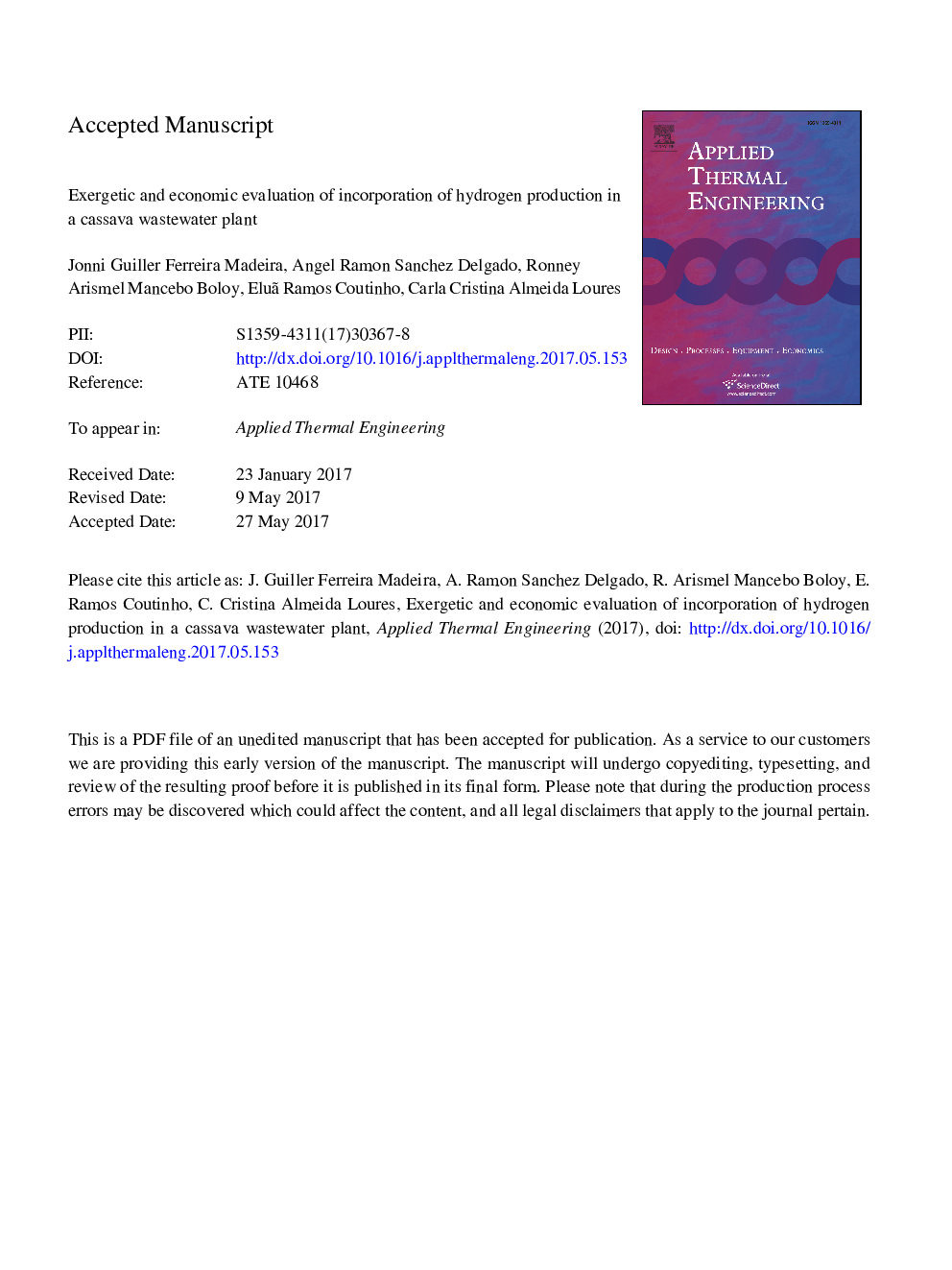| Article ID | Journal | Published Year | Pages | File Type |
|---|---|---|---|---|
| 4990583 | Applied Thermal Engineering | 2017 | 24 Pages |
Abstract
The use of bioenergy has become a good alternative to reduce the emission of polluting gases. In Brazil, this type of energy has increased in the last years. Hydrogen has presented itself as an alternative fuel in relation to fossil fuels, becoming economically competitive. Informations on the viability of biohydrogen production using wastewater from cassava processing is very limited. This paper analyzes the exergetic and economic efficiency of the biohydrogen production using cassava wastewater from a large-scale plant, through a computer simulation of the process performed by the reformer using the software HYSYS (version 8.0). The exergetic analysis revealed that the Pressure Swing Adsorption (PSA) is the step with highest irreversibility, being responsible for 85.7% of all exergy destroyed in the productive process. The study showed that the global exergetic efficiency of the plant was 79%, which is a good value in comparison to others in the literature. The economic feasibility calculation was performed to evaluate how interesting the process is by analyzing the investment, operation and maintenance costs of the biogas steam reformer and the hydrogen production cost achieved the value of 0.13Â US$/kWh with a payback period of 7Â years. The results obtained by these analyses showed that this type of hydrogen production is a good choice for power generation.
Related Topics
Physical Sciences and Engineering
Chemical Engineering
Fluid Flow and Transfer Processes
Authors
Jonni Guiller Ferreira Madeira, Angel Ramon Sanchez Delgado, Ronney Arismel Mancebo Boloy, Eluã Ramos Coutinho, Carla Cristina Almeida Loures,
